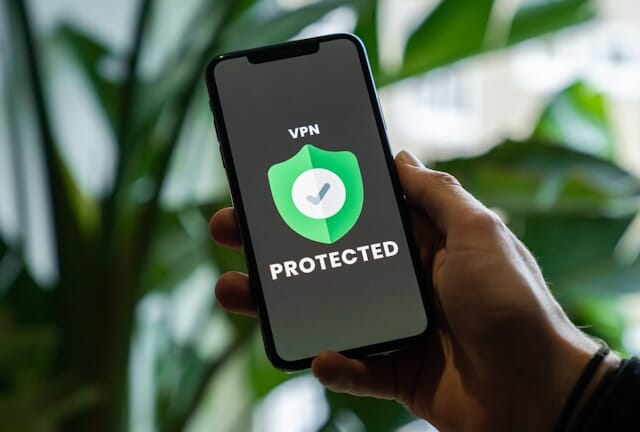Have you ever wondered if a VPN really makes you invisible online? Or if free ones are a steal? In 2025, with rising cyber threats and data privacy concerns, VPNs are more popular than ever. But misinformation abounds. This post debunks 7 prevalent VPN myths, revealing the facts based on expert insights and recent developments. Whether you're a newbie or seasoned user, understanding these can help you choose wisely and stay secure. Let's dive in.
Myth 1: VPNs Provide Complete Anonymity - Debunking VPN Misconceptions
Many believe flipping on a VPN erases your digital footprint entirely. Picture this: you're browsing, thinking no one can trace you. But that's a myth. VPNs hide your IP address and encrypt traffic, making it tougher for ISPs, advertisers, or sites to track you directly. However, they don't guarantee full anonymity.
The truth? Your VPN provider might log data if it lacks a strict no-logs policy. Logged-in accounts on platforms like Google or Facebook can still identify you through cookies or behavior patterns. Even with a VPN, law enforcement could subpoena records in serious cases. In 2025, advancements like AI-driven tracking make true anonymity harder. Choose audited no-logs providers like those with RAM-only servers for better privacy. Combine VPNs with tools like Tor for enhanced protection, but remember, no tool offers 100 percent invisibility. Focus on reputable services to minimize risks effectively.
Myth 2: Free VPNs Are Just as Good as Paid Ones - Common VPN Myths Exposed
Who doesn't love free stuff? The idea that free VPNs match paid versions in quality tempts many budget-conscious users. After all, why pay when you can get protection for nothing? This misconception overlooks hidden costs.
Reality check: Free VPNs often fund operations by selling user data to advertisers or third parties, compromising your privacy the very thing you sought to protect. They typically feature limited servers, leading to overcrowding and slow speeds. Bandwidth caps, intrusive ads, and weak encryption are common. In contrast, paid VPNs invest in robust infrastructure, offering unlimited data, faster connections, and advanced features like kill switches.
Recent 2025 reports highlight free VPN scandals involving data leaks. For instance, some harvest browsing habits for profit. Exceptions like Proton VPN's free tier exist, but even they push premium upgrades for full benefits. Invest in paid options; they're worth it for reliable security without selling your soul, or data.
Myth 3: VPNs Always Slow Down Your Internet - VPN Speed Myths Busted
A persistent fear is that VPNs turn your speedy connection into a crawl. Users imagine buffering videos or lagging games, deterring them from using one. This stems from older tech, but it's largely outdated.
The fact: While VPNs add encryption overhead and route traffic through distant servers, modern protocols like WireGuard minimize impact. In many cases, you won't notice a difference for everyday browsing. If your ISP throttles bandwidth for certain activities, a VPN can actually speed things up by masking your traffic.
In 2025, with 5G and fiber optics widespread, premium VPNs boast thousands of optimized servers. Choose nearby locations to reduce latency. Tests show top providers maintain 90 percent of original speeds. For gamers or streamers, specialized VPNs with low-ping servers excel. Don't let this myth stop you; proper setup ensures seamless performance while securing your data.
Myth 4: VPNs Are Only for Criminals or Shady Activities - Debunking VPN Usage Myths
The stereotype paints VPN users as hackers in dark rooms plotting misdeeds. Media often links them to illegal downloads or evading authorities, scaring off everyday folks. But this couldn't be further from the truth.
Actually, VPNs serve legitimate purposes for millions. Journalists protect sources in censored regions, travelers access home banking securely, and remote workers safeguard company data. In 2025, with increasing surveillance from governments and corporations, VPNs empower privacy for all. They block trackers, prevent ISP snooping, and enable geo-unblocking for legal content like international news.
Legality varies by country; they're banned in places like North Korea, but fine elsewhere. Using a VPN for crimes remains illegal, but the tool itself isn't. Embrace VPNs as a shield for your rights, not a cloak for wrongdoing. This myth discourages protection; don't fall for it.
Myth 5: VPNs Protect Against Malware and Viruses - VPN Security Myths Clarified
Some think a VPN acts as an all-in-one fortress, warding off every cyber threat including viruses. This overestimation leads to complacency, assuming no need for antivirus software.
Truth unveiled: VPNs excel at encrypting data in transit and hiding your IP, ideal for public Wi-Fi. However, they don't scan downloads, block malicious sites inherently, or remove infections. Malware can still infiltrate via phishing emails or compromised apps.
In 2025, integrated features in some VPNs, like ad-blockers or threat detection, offer partial help. For example, NordVPN's Threat Protection flags risky links. But these aren't substitutes for dedicated antivirus like Malwarebytes. Layer your defenses: Use VPN for privacy, antivirus for device threats. This combo provides comprehensive security without false assurances.
Myth 6: All VPNs Are the Same - Comparing VPN Myths and Realities
With hundreds of options, it's easy to assume they're interchangeable. Pick any, right? This myth ignores vast differences in quality and features.
The reality: VPNs vary in encryption strength, server networks, logging policies, and specialties. Some prioritize streaming unblocking, others torrenting speed or enterprise security. In 2025, look for audited providers with open-source apps for transparency.
Free or cheap ones might leak data, while premium like ExpressVPN offer global coverage and 24/7 support. Features like split-tunneling or obfuscated servers set them apart. Research via reviews and trials. Not all equal; choosing wisely means better protection tailored to your needs, avoiding subpar services that could expose you.
Myth 7: You Only Need a VPN on Public Wi-Fi or When Traveling - Everyday VPN Myths Debunked
Many reserve VPNs for coffee shops or airports, thinking home networks are safe. This underestimates constant risks.
Fact: At home, ISPs log and sell browsing data, hackers target routers, and IoT devices like smart cams are vulnerable. VPNs encrypt all traffic, preventing throttling and profiling. In 2025, with remote work norms, they're essential daily.
Public Wi-Fi amplifies dangers, but home use blocks surveillance too. Set up on routers for whole-house coverage. Don't limit to travel; consistent use maximizes benefits, keeping you secure everywhere without exceptions.
In conclusion, busting these VPN myths empowers smarter choices. Prioritize reputable paid VPNs, understand limitations, and layer protections. Stay informed in 2025's digital landscape for optimal privacy. Your online safety starts with facts over fiction.
Read More
- Facebook AI Button Revolutionizes Photo Sharing But Raises Privacy Flags
- Samsung Resumes One UI 8.0 Rollout for Two Galaxy S22 Variants After Brief Pause
- WhatsApp Introduces Built-In Translator for Users: Here's How to Use It
- Top 5 Fastest Browsers for Android in 2025: Unlock Lightning-Fast Mobile Browsing

